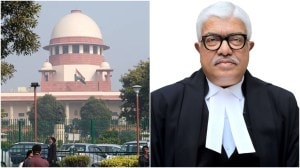CAG asks for more
When the chief auditor plays the adversary and calls for more powers,theres reason for concern
Not content with its constitutional remit to audit government receipts and expenditure and hold the executive to account,the Comptroller and Auditor General of India now wants more it wants to audit all public expenditure,including projects in public-private partnership (PPP) mode. Formulated at a meeting in Shimla,this move was enthusiastically backed by 10 secretaries of the Government of India. A few days back,the CAG had spoken in strong words,on the governments credibility (at its lowest ebb),and how committed administrators from the all-India services had a larger mission to fulfil.
The CAG,clearly,has set itself a more ambitious manifesto,ignoring the prime ministers recent advice to work from a position of strength,rather than thinking it could fairly and accurately judge specialised policy questions. The public auditor is meant to report to Parliament on how public funds are used,and inquire into whether government departments and agencies make value-for-money decisions. However,in recent months,the CAG has arrogated to itself what appear like magisterial functions,commenting on the governments ineptitude and ethics deficit. And while greater transparency and accountability of welfare programmes is an obvious good,it is not obvious that the same lens can be widened to include PPPs. While the CAGs overreach is certainly prompted by executive under-reach,the danger is this valued and venerable office could end up eroding its own reputation in this climate of hostility towards the government. Watchdog institutions,like the CAG and Election Commission,draw their moral authority from institutional mechanisms that insulate them from charges of bias or motivation. By picking arguments based on notions,especially those that could invite a well-founded rebuff,the CAG stands the risk of undermining the authority and credibility of a very important institution.
At the moment,the political leadership appears especially fragile,and unable to hold back this encroachment by civil servants. However,it sets a dangerous precedent for the office when the CAG aligns itself in an adversarial role to the executive,rather than neutrally assessing institutional performance.



- 01
- 02
- 03
- 04
- 05




























